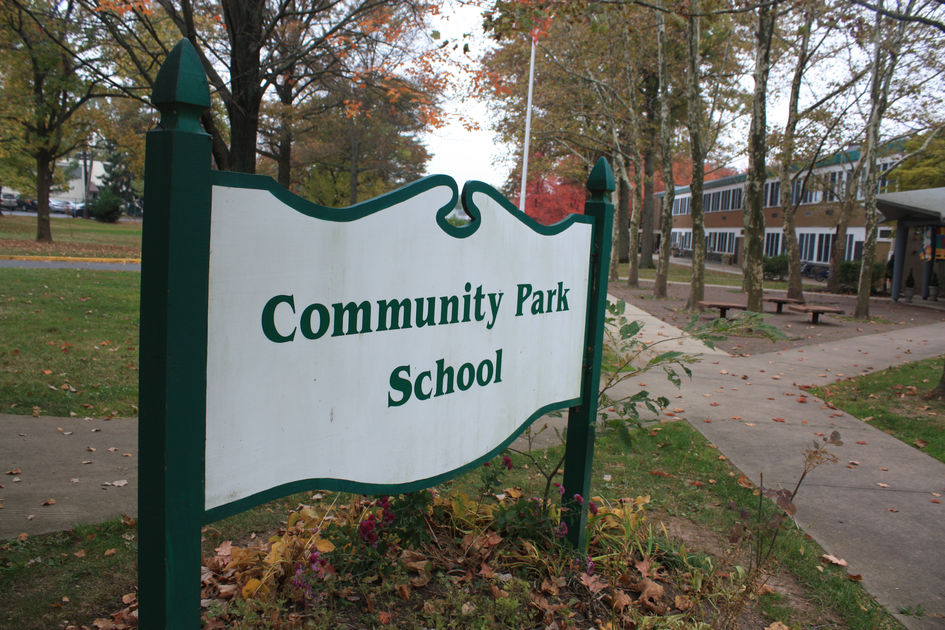The mother of a third-grader at Princeton’s Community Park Elementary School, Witherspoon Street, has filed complaints with the state about mold, indoor air quality and other conditions for each public school in the Princeton Public Schools, including the one her daughter attends.
Jennifer Cohan said on Oct. 31 that she brought her concerns to the state Department of Labor, “because they have more standards” and “more regulations and systems in place to oversee the standards in the schools than the Department of Education.”
Angela Delli Santi, a spokeswoman for the Department of Labor, said on Oct. 31 the complaints were referred to the state Department of Health.
“The department will be contacting the district about the complaints we received and their responsibility under the Indoor Air Quality regulations,” said Dawn Thomas, a spokeswoman for the state Department of Health, also on Oct. 31. “We will also be offering compliance assistance to the district through our Public Employees Occupational Safety and Health (PEOSH) consultation unit.”
“We are happy to have anyone come in,” Superintendent of Schools Stephen C. Cochrane said on Oct. 31. “I think if PEOSH or (the Occupational Safety and Health Administration) were to come in and review our procedures, they would see we have done exactly what we need to do and probably have gone beyond what the recommended protocols would be.”
District administrators have said they have had to deal with mold in the schools, but according to Cochrane, the types of mold “are not of concern” and the levels “didn’t reach the level of concern where we needed to do anything beyond the protocols we are already taking … ”
He said actions have run the gamut from “basic cleaning” by in-house staff to having a contractor use air-scrubbers to do cleaning.
“We continue to follow those protocols,” he said. “We continue to respond to concerns that are raised by staff who may find something in their rooms. And we are continuing to do the testing and the cleaning and will until we’re satisfied our buildings are as safe as they possibly can be.”
But Cohan said the testing of her daughter’s school was incomplete. She said while schools opened on Sept. 5, the testing of every school did not occur until the week of Sept. 21.
She contended that the district notified parents, through an email, about mold concerns only after she raised the issue with the Mercer County superintendent of schools.
“I don’t think the district was going to tell the community anything until I began applying pressure,” she said.
Cochrane rejected Cohan’s claims.
“We’ve been forthright about the issue from the beginning,” the superintendent said. “We called the consultant in. We sent out an email to the community to let them know and continue to provide updates.”
At a Board of Education meeting on Oct. 30, the district’s environmental consultant briefed officials.
“I just want to make everybody aware of when we did the ambient air testing, there were no abnormal spore types that were noted in any samples we collected and no spore counts that were elevated to above a concern level,” said John Smoyer, of AHERA Consultants.
Smoyer pointed to weather conditions as being a factor.
“As we all know, this was a very unusual year for relative humidity and moisture, especially toward the later end of summer and the beginning of fall,” he said. “And that equated to Mother Nature blessing us with a lot of additional mold spores in the air.”
“We worked hand in hand with AHERA on the techniques and the methods for cleaning it,” said Gary Weisman, director of plant operations for the school district, also at the board meeting.
In an interview, Cohan explained how she got on the case of the mold. Initially, she said, she and her husband raised concerns because their daughter’s classroom did not have functioning air conditioning, which was a point of concern during a hot stretch in early September.
She said she was tipped off about mold in the district by a contact and later spoke to some district employees who told her of having mold in their classrooms or who had co-workers who had mold in their classrooms.
Cohan said she did not believe schools should have opened until after district administrators had addressed the issue.
Some schools in the state had mold issues that forced them to delay opening after summer break.
“It’s always in the best interest, in Princeton, to put the best foot forward and maintain this aura of excellence,” Cohan said. “But people who honestly work in the schools and have been dealing with cockroaches and non-functioning air conditioners and other issues frankly know better.”
Board President Patrick Sullivan had no comment on the matter on Oct. 31.
One state lawmaker from Mercer County is sponsoring a bill that would require administrators to address mold in their school district and come up with a way to address the problem.
“It is our responsibility to make our schools as safe as possible in all regards, which includes ensuring, to the best of our ability, that all the schools in our state are inspected and cleaned of potentially dangerous mold,” Assemblyman Daniel R. Benson (D-Mercer and Middlesex) said in a statement. “Mold can cause severe health issues, especially for individuals already suffering from upper respiratory diseases such as asthma.”

